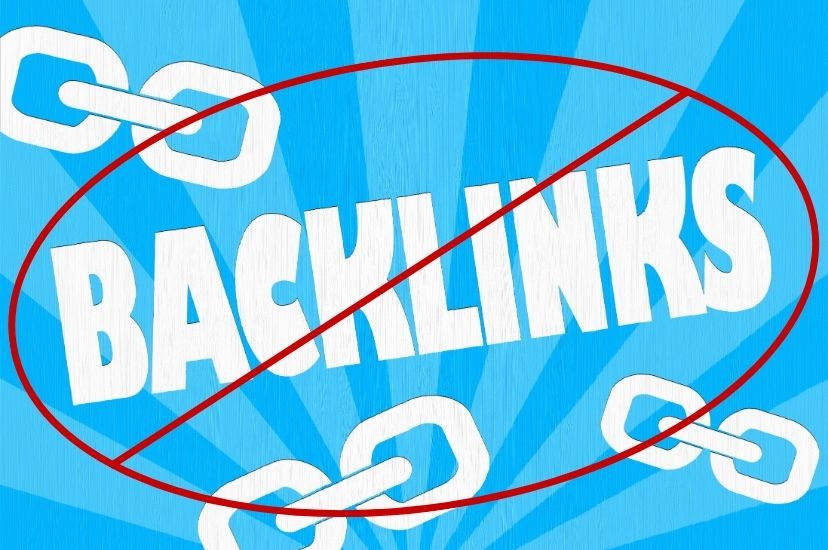
Date First Published: 7th June 2023
Topic: Web Design & Development
Subtopic: SEO
Article Type: Computer Questions & Answers
Difficulty: MediumDifficulty Level: 6/10
Learn about 6 sites you should avoid linking to in this article.
Links to external sites are a useful way of providing more information to your visitors, recommending useful sites and services, and providing a better overall user experience since they add more context to readers. Search engines interpret external links as an organic relationship between two sites. However, external links can also work against you and other visitors.
It is possible to link to anything and there is no limit on the number of external hyperlinks you can insert in a webpage. However, just because it is possible to link to anything doesn't mean that you should. Below are 6 sites you should avoid linking to on social media sites, forums, comments sections, and your website. There are no specific names of sites here. There are just specific types of sites you should avoid linking to in the interest of user experience and SEO.
If you don't want the links on your site to provide any authority or SEO benefits to the linked website, you can use the nofollow attribute. This attribute instructs search engines to not pass any equity to the linked page. But, it is best to avoid linking to it at all and just add the URL without a link if you need to mention a type of site listed below. With the exception of direct competitors, all of the examples below are not the sorts of sites users would want to be directed to by clicking on a link, so this is also helpful for user experience.
This only applies if you have your own website. This is a common mistake that people make when linking to related sites on their websites and it is a bad idea. Although links should ideally be between related sites as lots of external links between unrelated sites can make your site look spammy and lead to a poor user experience, avoid linking to competing websites that use the same keywords or keyphrases as your site. There is a chance that the link will only help to boost their ranking and lower your ranking. Linking to direct competitors does not guarantee a link back. It also doesn't guarantee that they will keep that link on their site. Before linking to an external site, always confirm that the linked site is not a direct competitor.
Scam sites are designed to deceive other people and often use false claims to trick people into giving away their personal information and money. Examples of scam sites are phishing sites that impersonate trusted companies to steal sensitive information from users and sites that sell fake products that are not as described on the page. Although a resource to make people aware of specific scam sites is very useful, never link to any scam sites as all links will boost their ranking in SERPs.
Linking to the scam site basically means that you are supporting it and giving the scammer what they want - more backlinks so that they can get a higher search engine ranking, increase traffic to their website, and scam more people, even if you do not intend to. When scam sites appear higher in search engines, like Google, it will increase the chances of other people clicking on the result that links to the scam site and possibly falling for the scam.
Avoid linking to non-existent sites that return errors when loading the pages in user's web browsers as this will create broken links, which will lead to a poor user experience and can irritate users. This also includes sites that are just about to be created. Before linking to a site, always confirm that it exists and doesn't return errors.
Linking to sites that simply have little to no content, also known as 'thin content' can also lead to a bad user experience as they have little to no value for users. Although it is unlikely that sites with little to no content will rank well as they often don't have enough content for search engines to understand what pages are about, pages with simply little to no content have definitely ranked high on search engines and linking to them will boost the search engine ranking of them.
If you link to a site with false or misleading information that deceives other people, it will boost the search engine ranking of it. Search engines do not manually fact-check content before it appears in the search results. This means that false or misleading information can definitely show up. By linking to a site with false or misleading information, you are increasing the chances of that the result will appear higher up and the information will be found by other searchers and deceive them.
Never link to sites that distribute malware or other unwanted software. This doesn't only boost the search engine ranking of those sites and cause them to rank higher in the search results leading to the malware spreading to more and more users. This also puts other people at risk of downloading and installing malware or other unwanted software by clicking on the link on your website. Before sharing a download link, confirm that the link does not try to directly install malware onto computers or redirect to other sites that try to download malware.
If so, it is important that you tell me as soon as possible on this page.
Network Services Network Setups Network Standards Network Hardware Network Identifiers Network Software Internet Protocols Internet Organisations Data Transmission Technologies Web Development Web Design Web Advertising Web Applications Web Organisations Web Technologies Web Services SEO Threats To Systems, Data & Information Security Mechanisms & Technologies Computer Hardware Computer Software Ethics & Sustainability Legislation & User Data Protection